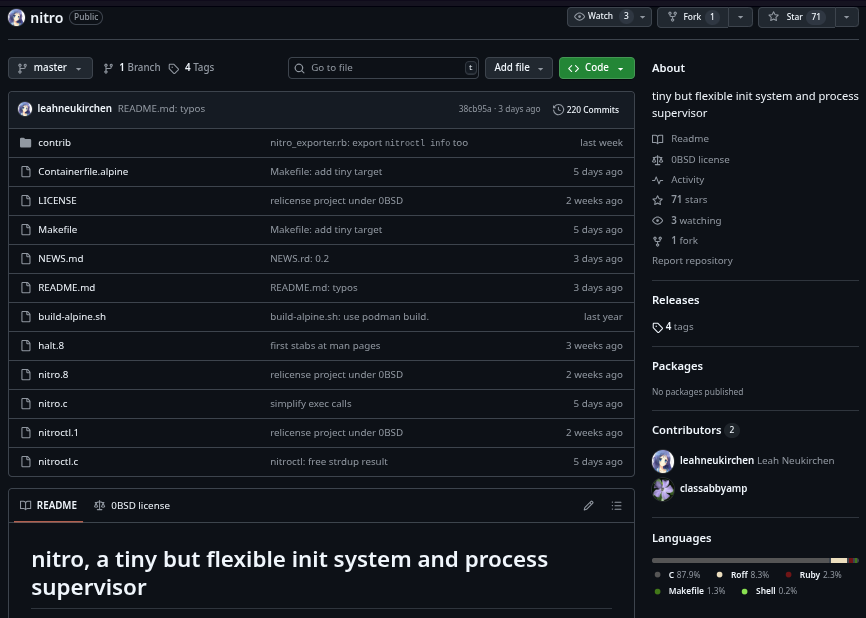
A new Linux init system called Nitro has been released. It acts as a supervisor, managing and monitoring services to ensure they start correctly and continue running reliably. Nitro is designed to be lightweight, simple, and efficient, making it suitable for small systems, embedded devices, and containerized environments.
For clarification, init systems are programs that start and manage other services on a computer, ensuring they run correctly during startup and shutdown. In this case, Nitro is a minimal and reliable alternative to heavier systems like systemd, focusing on simplicity and predictable service management.
Let's dive in! 😄
Nitro: What to Expect?

Developed by Leah Neukirchen, who is known for her work on Void Linux, Nitro organizes services in simple folders with scripts to configure, start, stop, or log each service. It can handle one-time tasks as well as services that need to run continuously.
Nitro keeps all runtime data in memory (RAM), making it suitable for systems with limited resources or read-only filesystems. It can also run efficiently in containers, providing fast and reliable service supervision.
Unlike systemd, Nitro focuses solely on starting and supervising services, avoiding complex dependency trees or deep integration. This approach makes it easier to manage, particularly for small systems or lightweight containers.
Compared with runit, Nitro keeps runtime state in memory and allows flexible service setups. It is compact, efficient, and adheres to modern Linux standards while remaining easy to understand.
Currently, it does not include advanced features like readiness checks or service overrides, but it is designed to stay minimal, leaving extended policies to external tools if needed.
The source code is available on GitHub and a detailed comparison with runit can be found in Leah’s blog post.
- Even the biggest players in the Linux world don't care about desktop Linux users. We do.
- We don't put informational content behind paywall. Your support keeps it open for everyone. Think of it like 'pay it forward'.
- Don't like ads? With the Plus membership, you get an ad-free reading experience.
- When millions of AI-generated content is being published daily, you read and learn from real human Linux users.
- It costs just $2 a month, less than the cost of your favorite burger.
Become a Plus Member today and join over 300 people in supporting our work.











